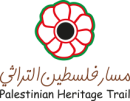Cultural Considerations

Palestinian People
No matter where you are in Palestine, you will always encounter the famous Palestinian warmth and hospitality. Palestinians possess a unique culture and a distinctive diversity that can quickly captivate you once you attempt to explore it. The Palestinian people from all walks of life come together to offer you a memorable experience, whether you are staying with a Palestinian or Bedouin family.
Language
The local language is Arabic, although most Palestinians also know a second or even third language, such as English, Spanish, or French. It is extremely helpful to learn greetings, basic phrases, and numbers in Arabic before arriving in Palestine; this will assist when paying for food, asking for directions, or taking a taxi.
Dress Code
It is important to note that modest dress is recommended. You will see many women fully-covered, and even men typically do not expose much skin, as might be customary in many other countries. Especially in places of worship, such as mosques and churches, and smaller Bedouin villages, it is necessary to cover up most of your skin.
Technology
You may be surprised to find that modern technology in the form of Internet or smart phones is ever present, not just in big cities, but even in small Bedouin villages.
Traffic and Driving
Traffic and driving in Palestine is adventurous; all drivers, taxis included, do their fair share of honking, weaving through lanes, and butting their way to the front of the line in the every-man-for-himself streets of Palestine. The people of Palestine are always warm and friendly, except when they are competing with you to get through a yield sign.
Traditions
- The Blessed Tree: Olive Harvesting
Today, the olive fruit harvest (October – November) remains the most celebrated event in Palestine. School children are given a holiday to accompany their families in this time-honored activity.
- Palestinian Wedding
Weddings in villages may be attended by all its inhabitants. Both Muslim and Christian weddings are similar in their heritage representations and traditional illustrations. Weddings are open for guests to participate.
- The Moment of Happiness: Henna
Henna is the plant powder mixed with water or tea and applied in designs on the bride’s arms and legs. It is considered as a sign of happiness.
Folklore
- Folklore Dancing (Dabkeh)
Dabkeh means stamp of the feet, which is the basic movement of the dance, either in a straight line, in an arch, or in a circle. Dabkeh is deeply rooted in the Palestinian culture and is often performed at joyful celebrations, especially at weddings. Shows are available upon requests.
- Music
While modern, popular music is widespread, traditional folk tunes like ala Dal’ona and Zareef at Toul are still an important part of life in Palestine. Folk tunes are often performed at big festivals, folk dances, and weddings (both during the Zaffeh, when the bride is brought to the groom’s house, and the Sahra, the evening festivities that occur the night before the actual wedding). Some of the traditional Palestinian musical instruments are the Oud, Shebbabeh, Rababeh, Mijwez, Yarhgoul, Nay, Buzuk and the Qanoun.



